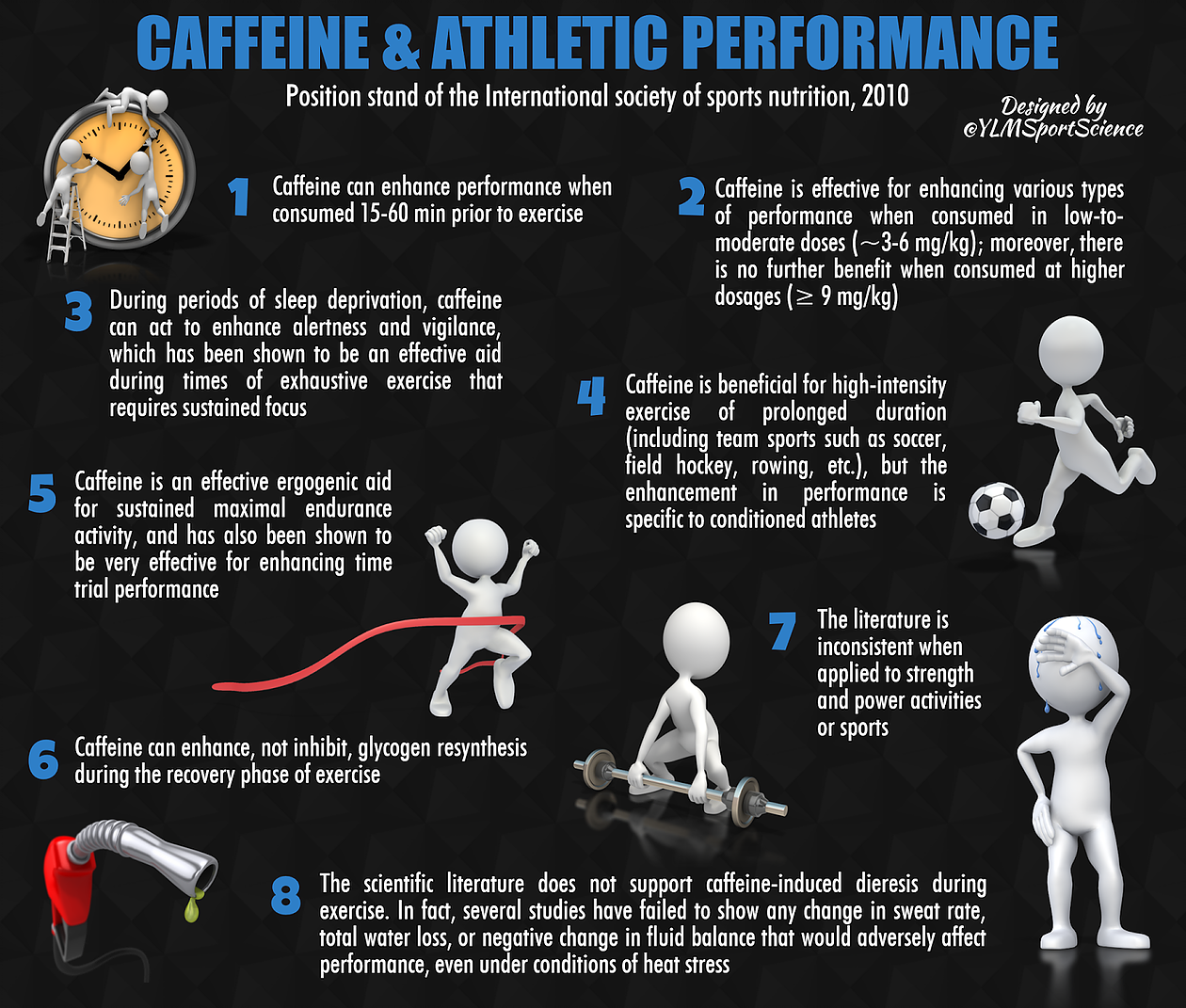Caffeine is a widely used stimulant that many everyday people use to function in normal daily life. Caffeine is also used as a stimulant by athletes to enhance competition or training performance. Furthermore, nearly every pre-workout doses their product with high amounts of caffeine as it is one of the only supplements that gives an ergogenic effect to nearly everyone regardless of the person. I personally use caffeine for some heavy training sessions but I’m not a regular caffeine taker so my tolerance is very low. Below I’m going to outline some of my experiences and tips for those athletes looking to or use caffeine for their training or competition.

Dose
Since I’m not a regular caffeine user, my tolerance is very low. From experimenting with dosages up to 200mg (a little over 2 cups of coffee), I’ve found my sweet spot sits at 50mg. Some larger athletes or athletes more tolerant to caffeine may have to dose much higher to get the benefits from caffeine for sport (400mg+).
Timing & Ingestion
In terms of timing, I’ve found my sweet spot to be an hour before training. I have caffeine mixed in with my big protein smoothie which helps slow the digestion. It’s important that you don’t take caffeine on an empty stomach. I can guarantee you that it’ll make you all jittery. Which leads me to my next tip.
Jitters
I don’t get jitters from 50mg of caffeine since the dose is so low. However, those of you who need higher doses may get that shaky feeling and I certainly do when I get up to 100mg+. Supplementing with L-Theanine evens you out and is a well-known nootropic (cognitive enhancer) combination. Generally, you have a 1:2 ratio of caffeine to L-Theanine so if you used 100mg of caffeine, then you’d mix that with 200mg of L-Theanine. In my experience, this keeps those jittery feelings at bay.
 Competition
Competition
This is going to be completely individual. I’ve seen athletes down large cans of energy drinks before competition while others won’t touch the stuff. In my experience, any caffeine ingested for competition pushes me over the edge and leaves me with jelly legs and a heart rate that so strong it feels like it might exit my chest. I’m already amped enough just with the thought of competing so caffeine is a no go for me. However, if you don’t experience these kinds of reactions and you feel you perform better, then stick with your caffeine dose you take for heavy training sessions. The number one rule is don’t try anything new in competition that you haven’t tried in training!
If you’re looking into supplements to enhance your performance, then caffeine has to be number one on your list. Experiment with it as you will respond differently than your peers. If you are a regular caffeine user, then higher doses will be needed to get an ergogenic effect in regards to performance. If you’re not a regular caffeine user, err on the side of caution and start with very small doses such as 50mg.
Caffeine comes in all different forms and in all different products. You can buy pure caffeine anhydrous and mix it yourself or there are small flavoured green tea sachets that work well which are only 27mg caffeine per sachet. Otherwise you can go with most peoples preferred choice of caffeine which is coffee (yuck).
